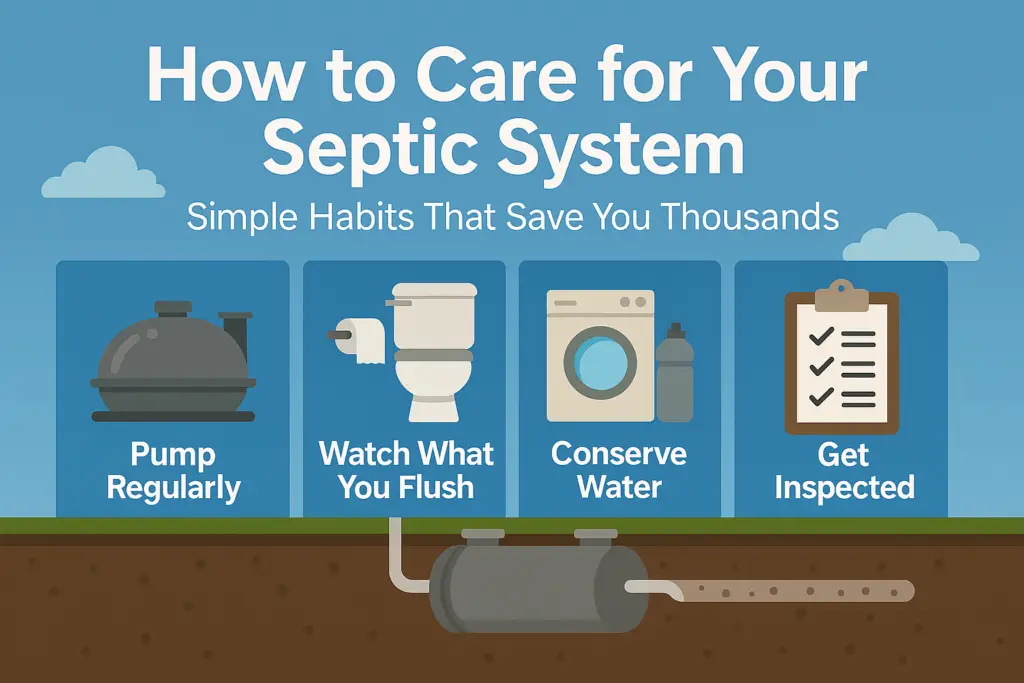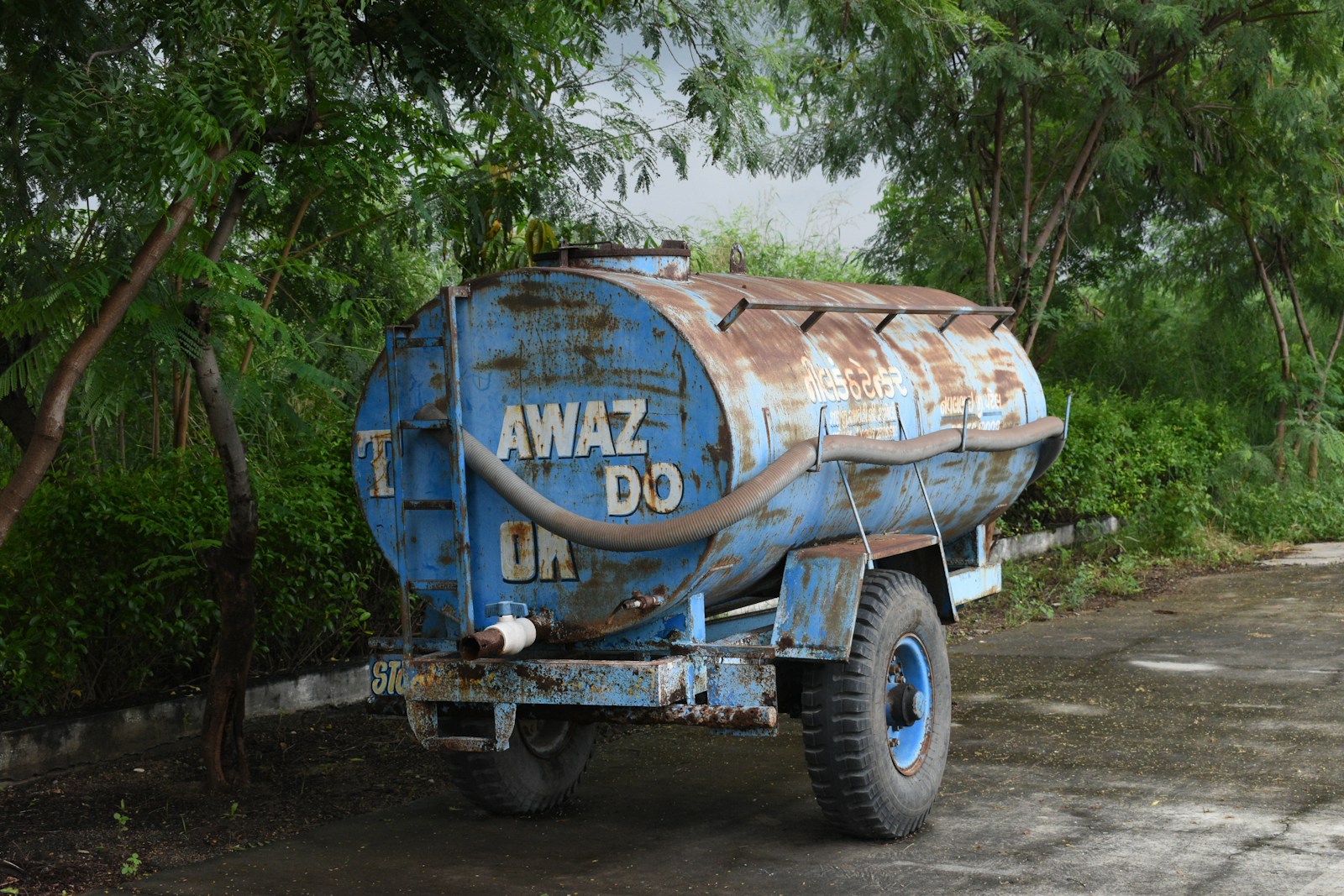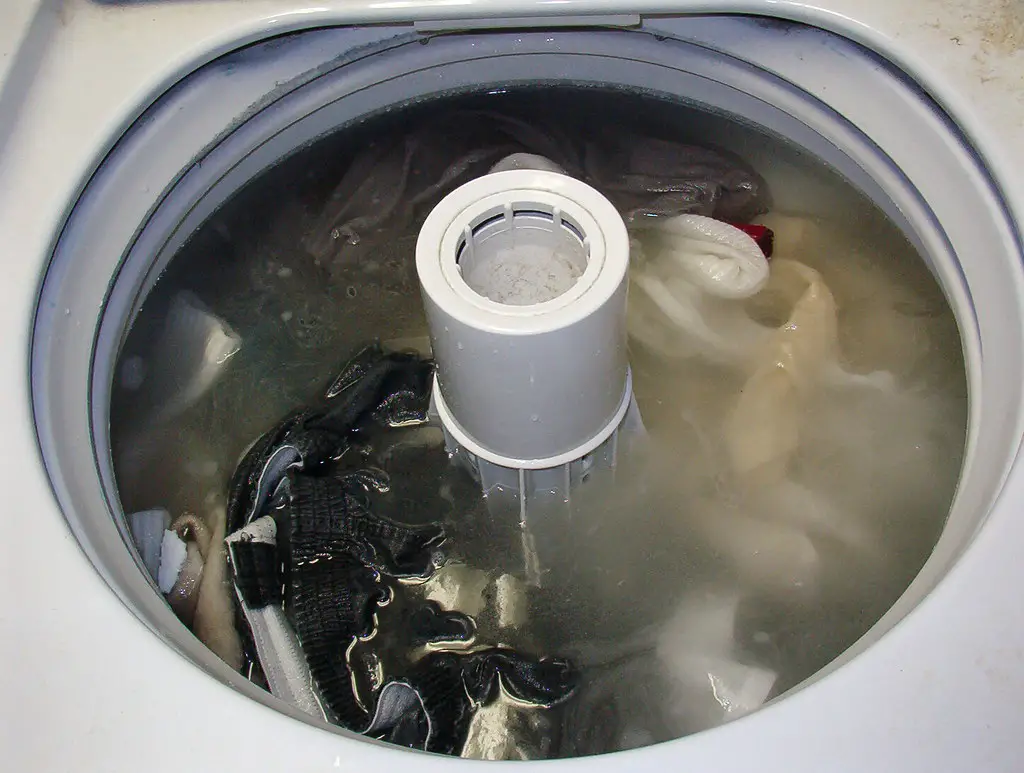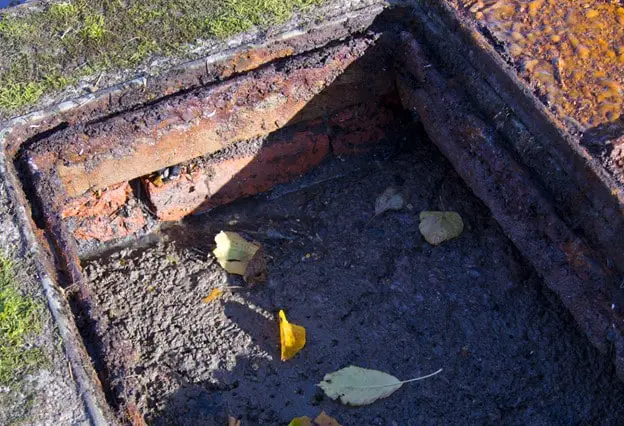Care for Your Septic System: Simple Habits That Save You Thousands
Your septic system is like the digestive system of your home—quiet, efficient, and underappreciated. Until something goes wrong. A little daily care can prevent backups, save you thousands, and keep your yard smelling like grass—not sewage.
This guide will walk you through how to care for your septic system with easy-to-follow tips anyone can implement.
1. Know Where Your Septic Tank Is
Don’t wait until there’s a problem to figure this out. Locate your tank and drain field now, and mark it for easy access. Avoid parking, planting trees, or building anything over it.
Not sure where to look? Use this guide to locate your septic tank without digging up your yard.
2. Watch What You Flush
If it’s not toilet paper or human waste, it doesn’t belong in your septic tank. No wipes, tampons, floss, kitty litter, or paper towels—no matter what the packaging says.
Need the full list? Check out our breakdown of what not to flush into a septic tank.
3. Space Out Your Water Usage
Septic tanks need time to process water. Doing 5 loads of laundry in one day or taking long showers back-to-back can overwhelm the system.
- Spread laundry across multiple days
- Use water-efficient appliances
- Fix leaky faucets and toilets promptly
4. Be Careful in the Kitchen Too
Grease, oils, coffee grounds, and food scraps can clog your system just as badly as bathroom waste. Scrape plates into the trash and use sink strainers.
5. Get Your Septic Tank Pumped Regularly
This is the #1 thing you can do to prevent septic system failure. Most homes need to be pumped every 3 to 5 years—but it depends on your household size and water use.
Not sure how often? Here’s a detailed guide to how often to pump your septic tank.
6. Don’t Use Chemical Additives or Harsh Cleaners
Your tank relies on natural bacteria to break down waste. Avoid bleach, antibacterial soaps, and chemical drain cleaners—they throw off the balance and can do more harm than good.
7. Schedule Inspections Every 1–3 Years
Even if your tank doesn’t need pumping yet, a professional can catch small problems before they become disasters—like cracked pipes, root intrusion, or drain field issues.

Everyday Habits That Make a Big Difference
- Use septic-safe toilet paper only
- Never pour grease down the drain
- Keep vehicles off the septic area
- Don’t overload the system with water
- Record every pump and inspection
Remember: septic systems aren’t high-maintenance—if you’re consistent with the basics.
Think It Might Be Time for Service?
Learn how to spot the signs your septic tank is full before disaster strikes.




